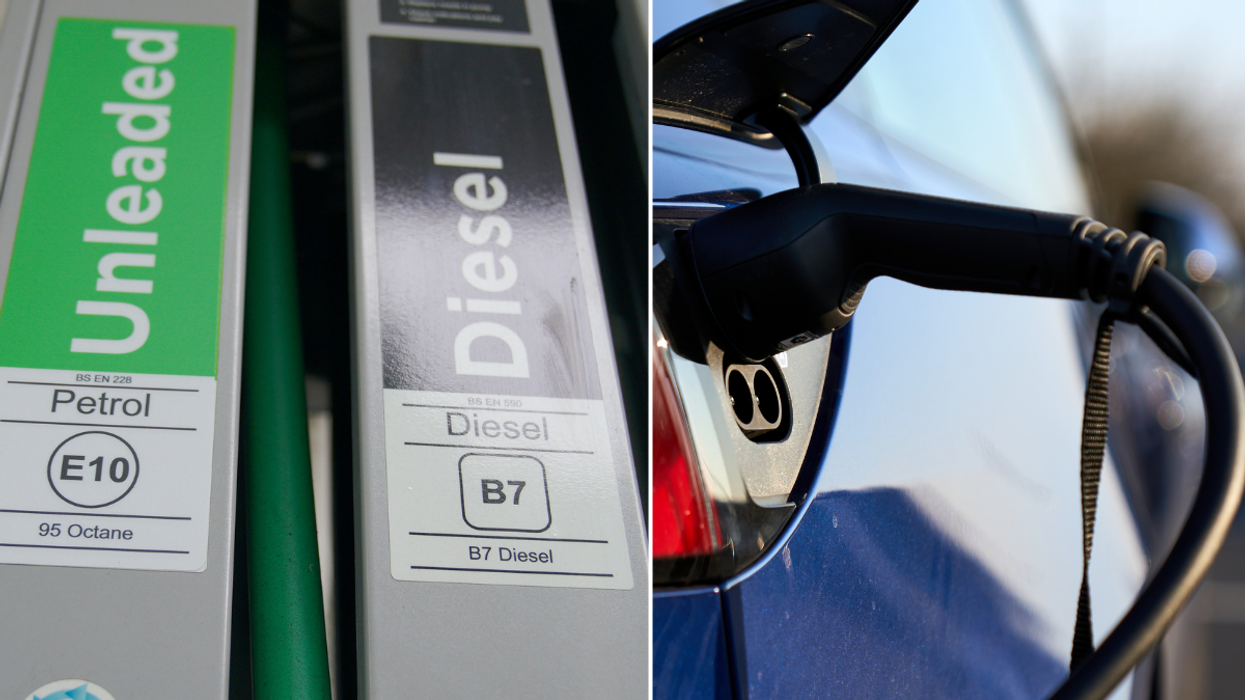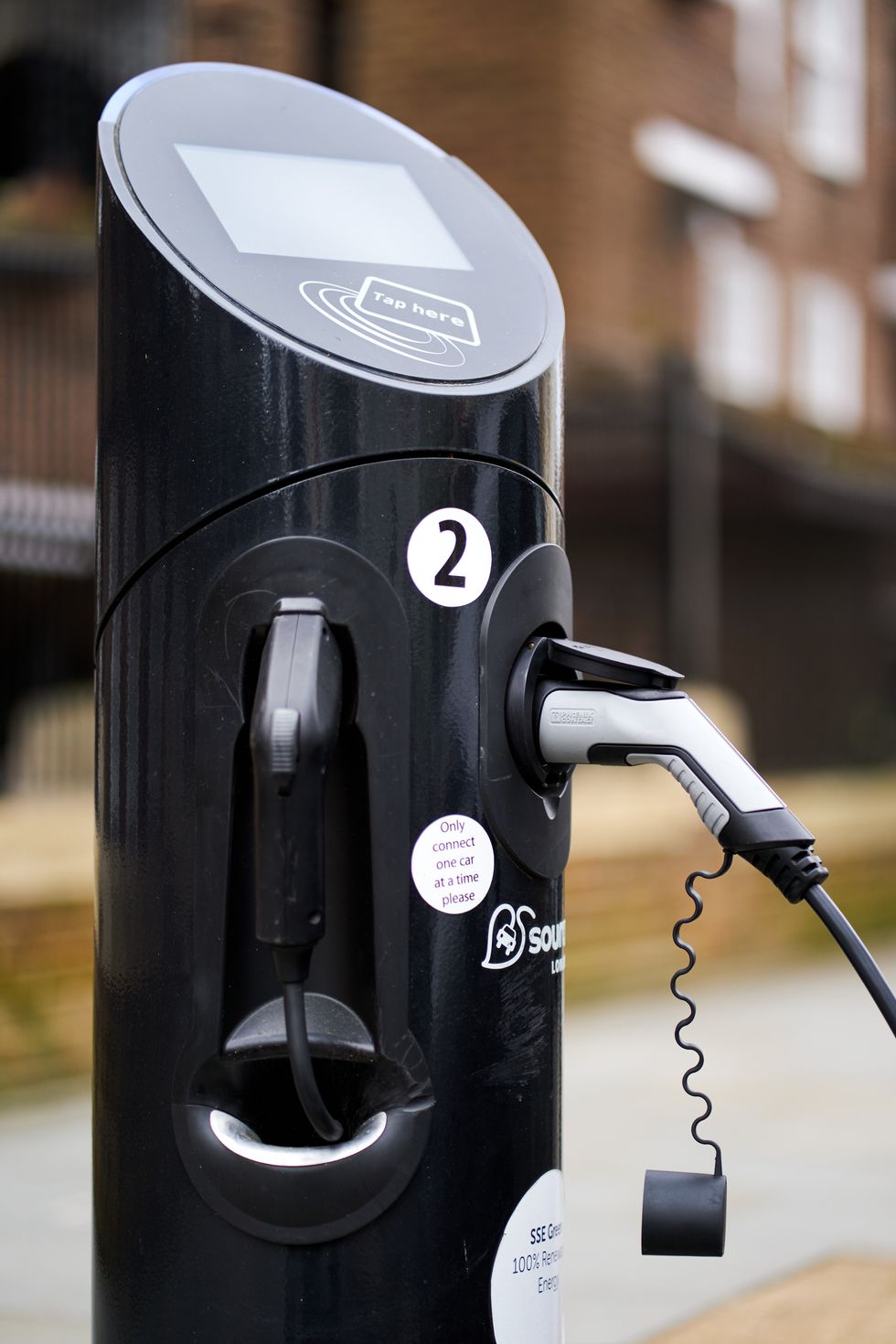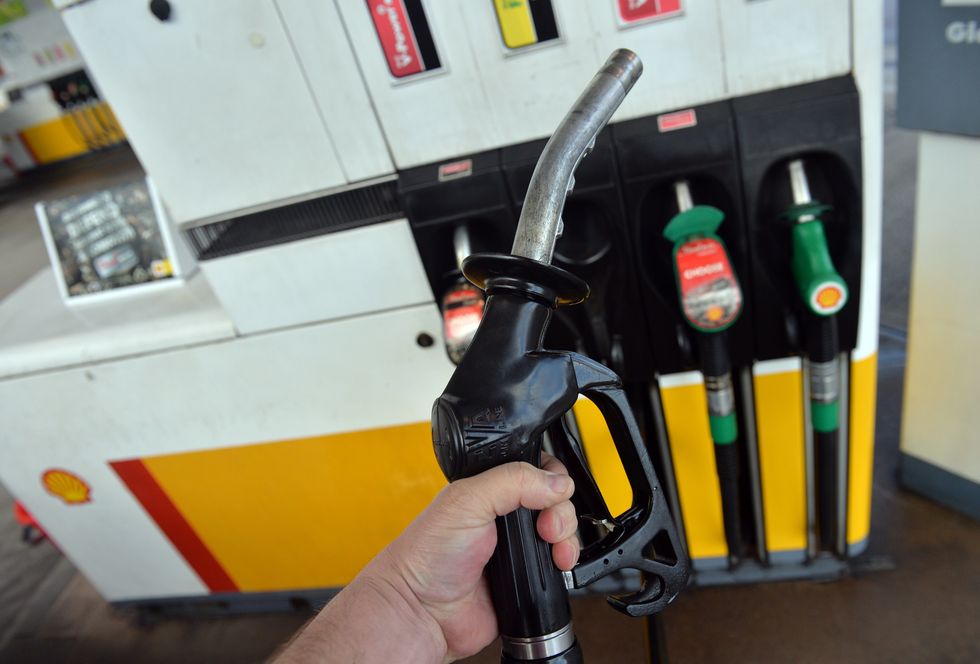Petrol and diesel drivers fuelled by ‘misinformation’ are causing the EV industry to crumble

One in two drivers were found to know very little about electric cars
|GETTY/PA

Driver knowledge around electric cars is seen as 'really poor'
Don't Miss
Most Read
Latest
Petrol and diesel drivers have “really poor” knowledge of electric cars with experts warning this is caused by major misinformation and is pushing motorists further away from making the switch.
According to a recent survey, one in two drivers (57 per cent) answered only 20 per cent of questions about EVs correctly.
The questions about electric cars were comprised of 10 statements with drivers asked to decide if they were true or false.
However, due to the mass negativity surrounding EVs, petrol and diesel drivers scored poorly on the questionnaire.
Do you have a story you'd like to share? Get in touch by emailing motoring@gbnews.uk

Misinformation has caused drivers to be hesitant to switch to an EV
| PAThe questions covered topics relating to ownership and running costs, the likelihood of them catching fire and the natural resources needed to build them.
Shockingly, 23 per cent of respondents scored zero, while 90 per cent answered only five questions correctly.
Colin Walker, head of transport at the Energy and Climate Intelligence Unit, which commissioned the research, said: “Poll after poll has found EV drivers love their cars and simply wouldn’t go back to petrol.
“But all the myths being pedalled about EVs are misleading some petrol car drivers who now have a really poor knowledge of electric cars.”
He explained that drivers were unaware that a petrol car costs a lot more to own and run over its lifetime than an electric car.
He added: “The constant stream of EV misinformation is clearly causing confusion and holding many of the UK’s drivers back from making the switch to cleaner and cheaper electric driving.”
Under the previous Conservative Government’s Zero Emission Vehicle Mandate, it sparked more competition between manufacturers to roll out more electric cars.
This in turn brought down upfront costs and started to feed the second-hand market where consumers primarily buy cars.
Walker noted that second-hand EVs are “already at price parity with petrol cars, but are so much cheaper to run, so the policy is set to bring down the costs of motoring for ordinary families”.
“The car industry is going to have to get serious about EV misinformation and the new Government will need to ask if it has a role to play too,” he stated.
Recent figures from the Society of Motor Manufacturers and Traders (SMMT) revealed that 37,741 new electric cars were registered for private buyers in the first seven months of the year.
This represented a 9.5 per cent reduction compared with the same period in 2023, despite the overall new car market increasing by 5.5 per cent
LATEST DEVELOPMENTS:

Petrol cars cost more to run in the long term
| GETTYEdmund King, AA president said: “The switch to electric vehicles is a big jump for many, particularly when they don’t know what they are getting into.
“We find drivers are hesitant rather than hostile, and much of this hesitancy is fuelled by misinformation. Once drivers get behind the wheel of an EV they rarely look back when they realise that EVs are better in terms of economy, environment and excitement.”
Meanwhile, Quentin Willson, founder of campaign group FairCharge, stated that factual, evidence-based information on electric vehicles is available online.
He remarked that too many consumers have been “duped into believing reheated, ill-informed myths and misinformation that’s often years old”.










